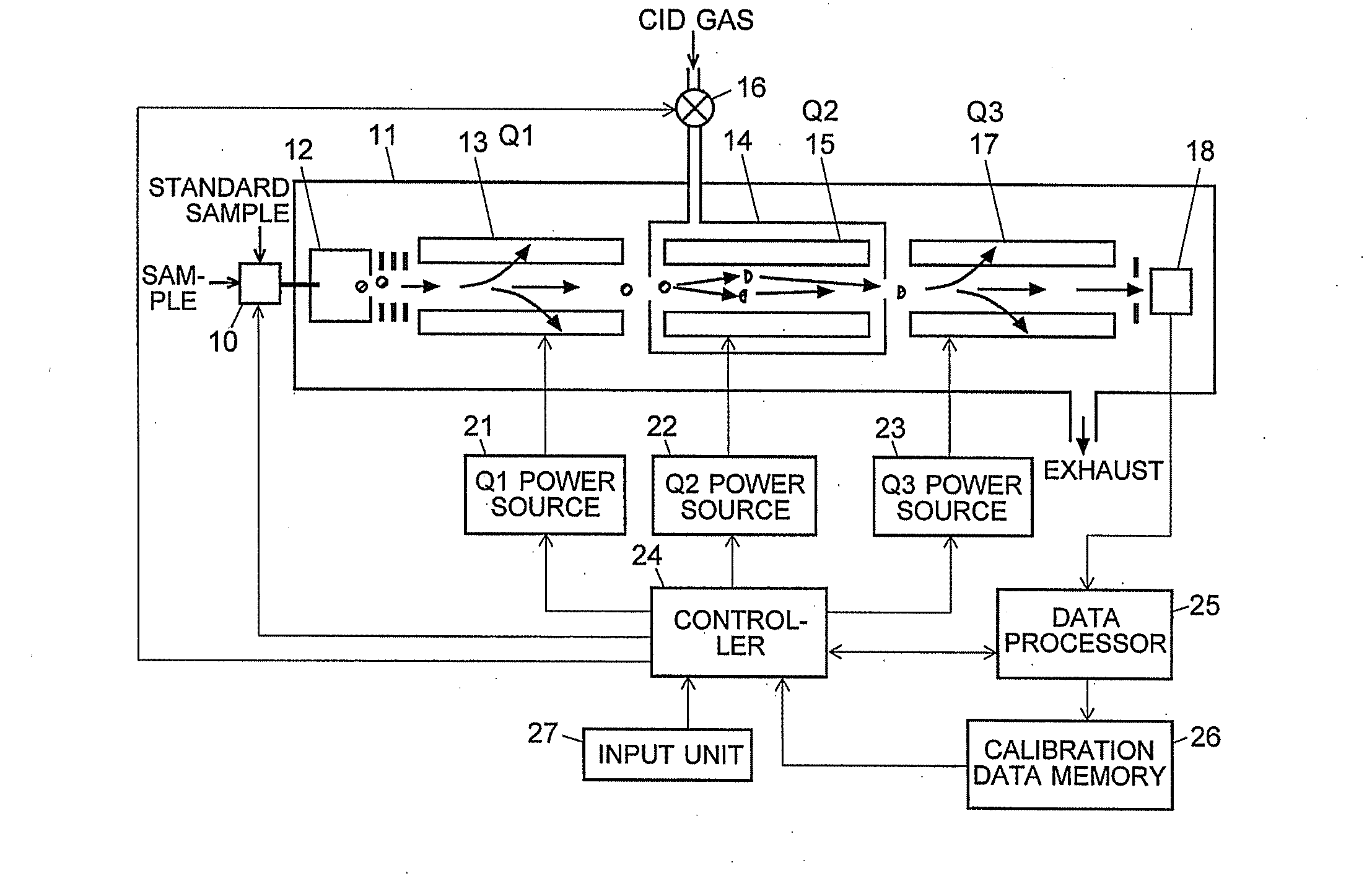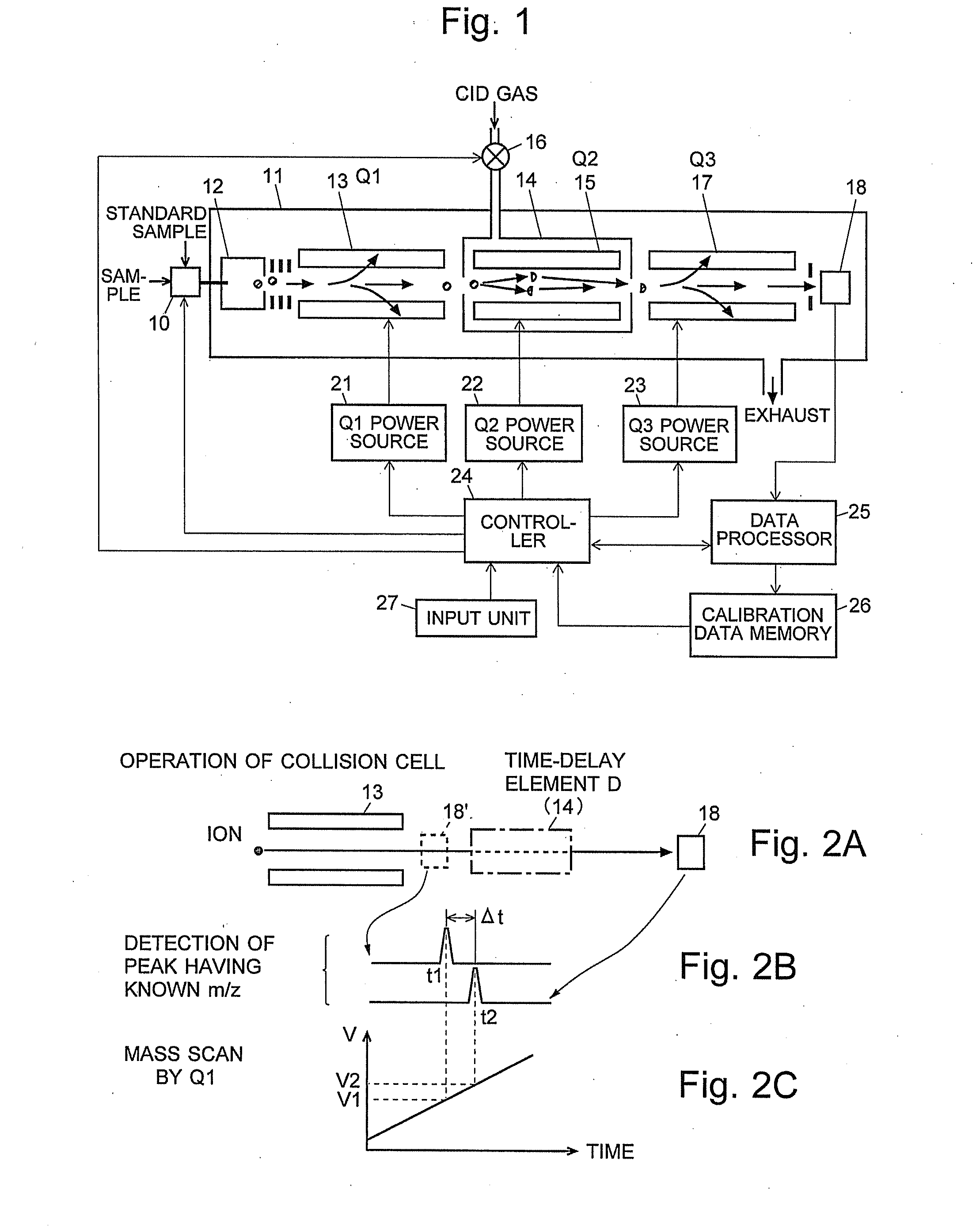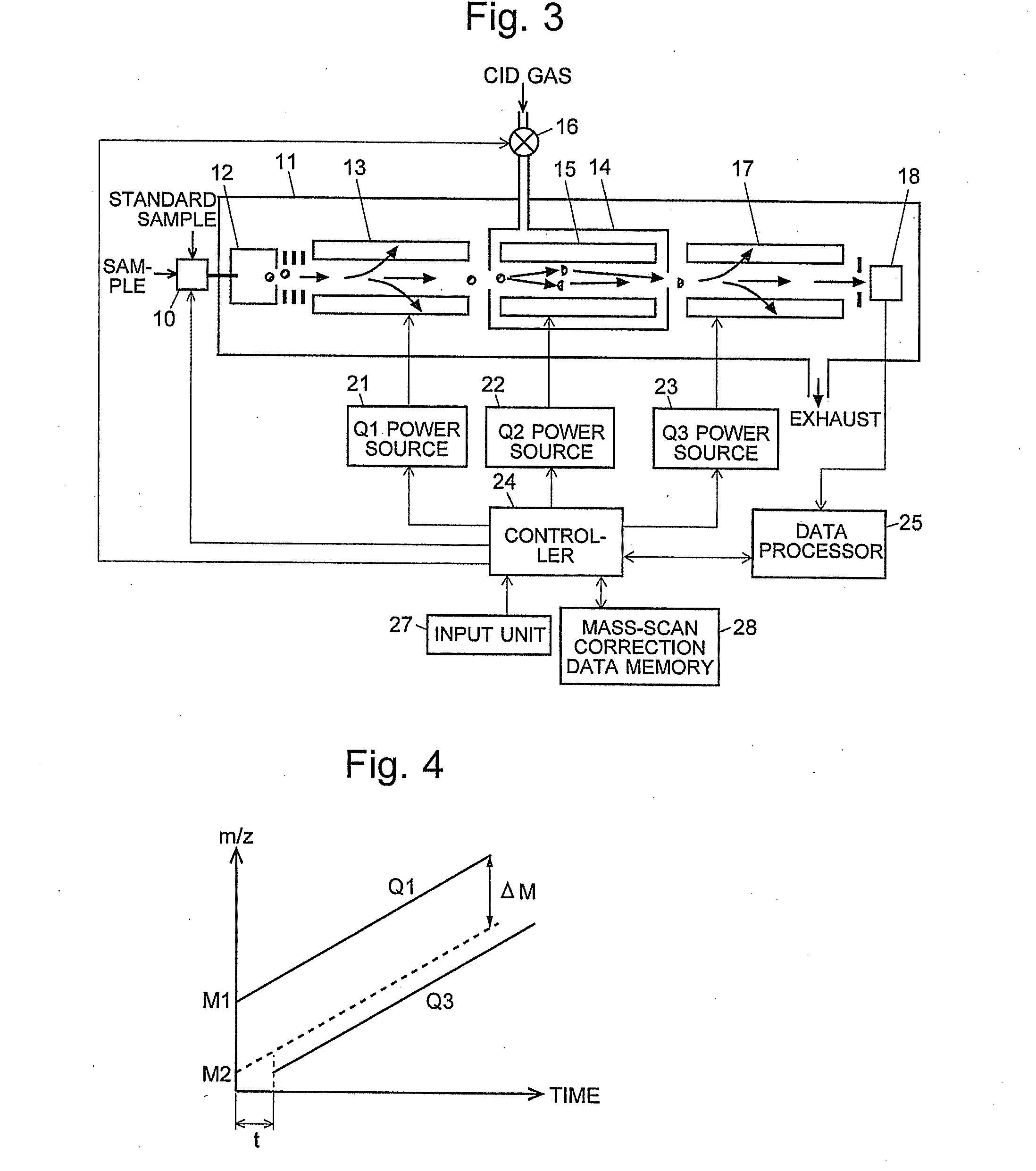MS/MS Mass Spectrometer
a mass spectrometer and mass spectrometer technology, applied in the field of ms/ms mass spectrometer, can solve the problems of significant time delay, decrease in flight speed, and deterioration of analysis sensitivity, so as to improve detection sensitivity for product ions originating from a target ion, and improve the accuracy of the mass axis of the mass spectrum created in the measurement.
- Summary
- Abstract
- Description
- Claims
- Application Information
AI Technical Summary
Benefits of technology
Problems solved by technology
Method used
Image
Examples
first embodiment
[0096]A triple quadrupole mass spectrometer as one embodiment (first embodiment) of the present invention is hereinafter described with reference to the attached drawings. FIG. 1 is a schematic configuration diagram of a triple quadrupole mass spectrometer of the present embodiment, and FIGS. 2A to 2C is model diagrams for explaining an operation characteristic of the triple quadrupole mass spectrometer of the present embodiment.
[0097]Similar to the conventional case, the triple quadrupole mass spectrometer of the present embodiment has a first-stage quadrupole 13 (which corresponds to the first mass separator of the present invention) and a third-stage quadrupole 17 (which corresponds to the second mass separator of the present invention), between which a collision cell 14 for dissociating a precursor ion to produce various kinds of product ions is located.
[0098]A Q1 power source 21 applies, to the first-stage quadrupole 13, either a composite voltage ±(U1+V1·cos ωt) including a DC...
second embodiment
[0109]As another embodiment (second embodiment) of the present invention, a triple quadrupole mass spectrometer is hereinafter described by means of FIGS. 3 and 4. FIG. 3 is a schematic configuration diagram of the triple quadrupole mass spectrometer of the second embodiment, and FIG. 4 is a model diagram for explaining an operation characteristic of the triple quadrupole mass spectrometer of the second embodiment. In FIG. 3, the same components as used in the previously described triple quadrupole mass spectrometer of the first embodiment are denoted by the same numerals. In the triple quadrupole mass spectrometer of the second embodiment, a mass-scan correction data memory 28, in which a set of predetermined correction data is previously stored, is connected to the controller 24.
[0110]As already explained, when a CID gas is introduced into the collision cell 14 to dissociate ions, the ions undergo a significant time delay when passing through the collision cell 14. To address this...
third embodiment
[0112]As yet another embodiment (third embodiment) of the present invention, a triple quadrupole mass spectrometer is hereinafter described by means of FIG. 5. FIG. 5 is a model diagram showing an operation characteristic of the triple quadrupole mass spectrometer of the third embodiment. The configuration of the present triple quadrupole mass spectrometer is basically identical to that of the second embodiment and hence will not be described.
[0113]In the case of the triple quadrupole mass spectrometer of the second embodiment, the delay time t for initiating the mass-scan operation of the third-stage quadrupole 17 under various dissociating conditions is stored as correction data in the mass-scan correction data memory 28. By contrast, in the triple quadrupole mass spectrometer of the third embodiment, a set of data for correcting the mass-to-charge ratio difference in the mass-scan operation is stored in the mass-scan correction data memory 28. That is to say, when a time delay of...
PUM
 Login to View More
Login to View More Abstract
Description
Claims
Application Information
 Login to View More
Login to View More - R&D
- Intellectual Property
- Life Sciences
- Materials
- Tech Scout
- Unparalleled Data Quality
- Higher Quality Content
- 60% Fewer Hallucinations
Browse by: Latest US Patents, China's latest patents, Technical Efficacy Thesaurus, Application Domain, Technology Topic, Popular Technical Reports.
© 2025 PatSnap. All rights reserved.Legal|Privacy policy|Modern Slavery Act Transparency Statement|Sitemap|About US| Contact US: help@patsnap.com



